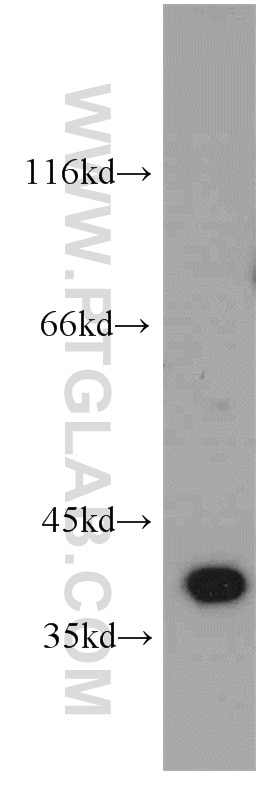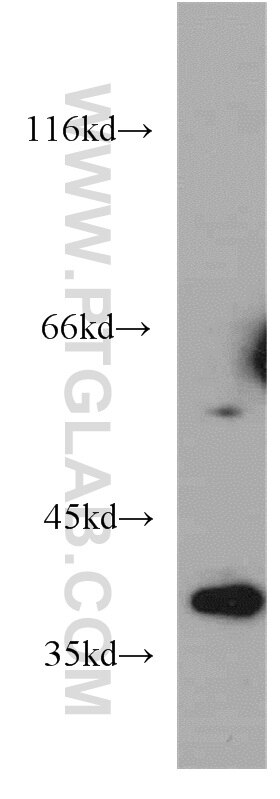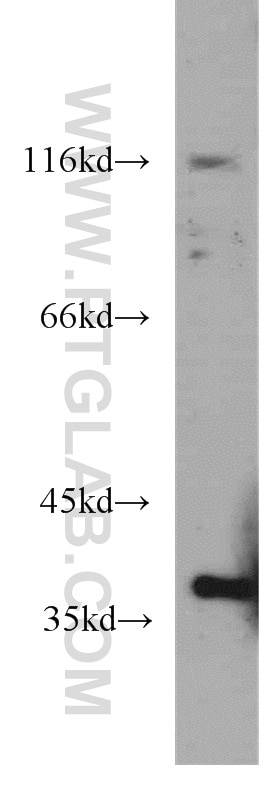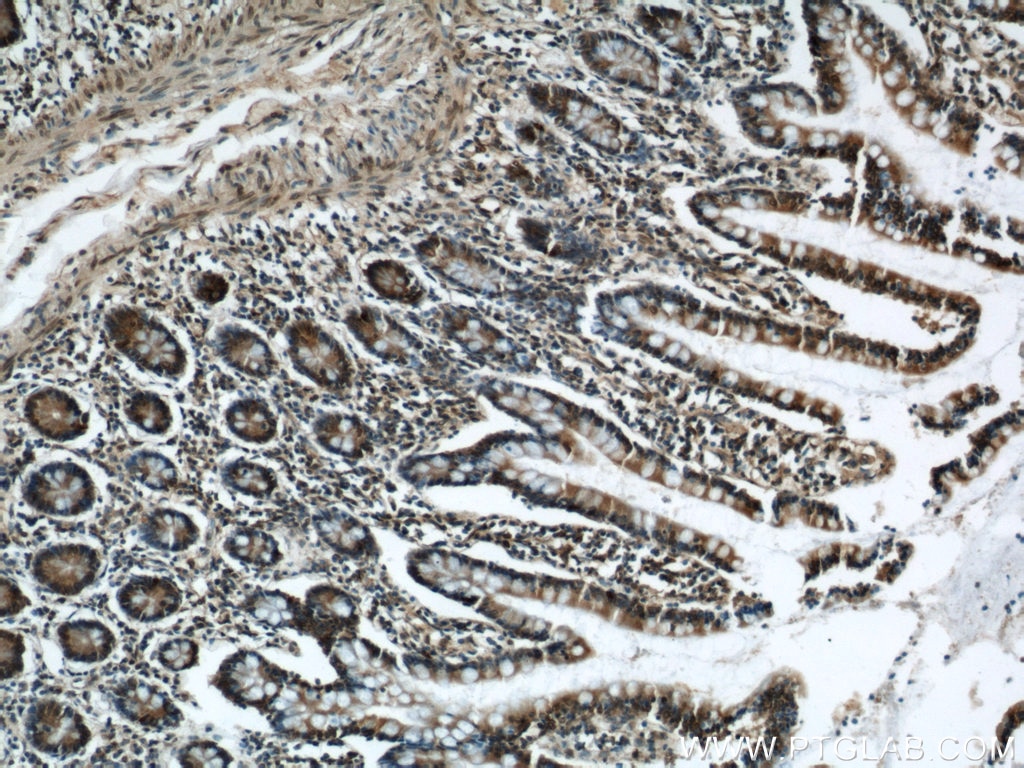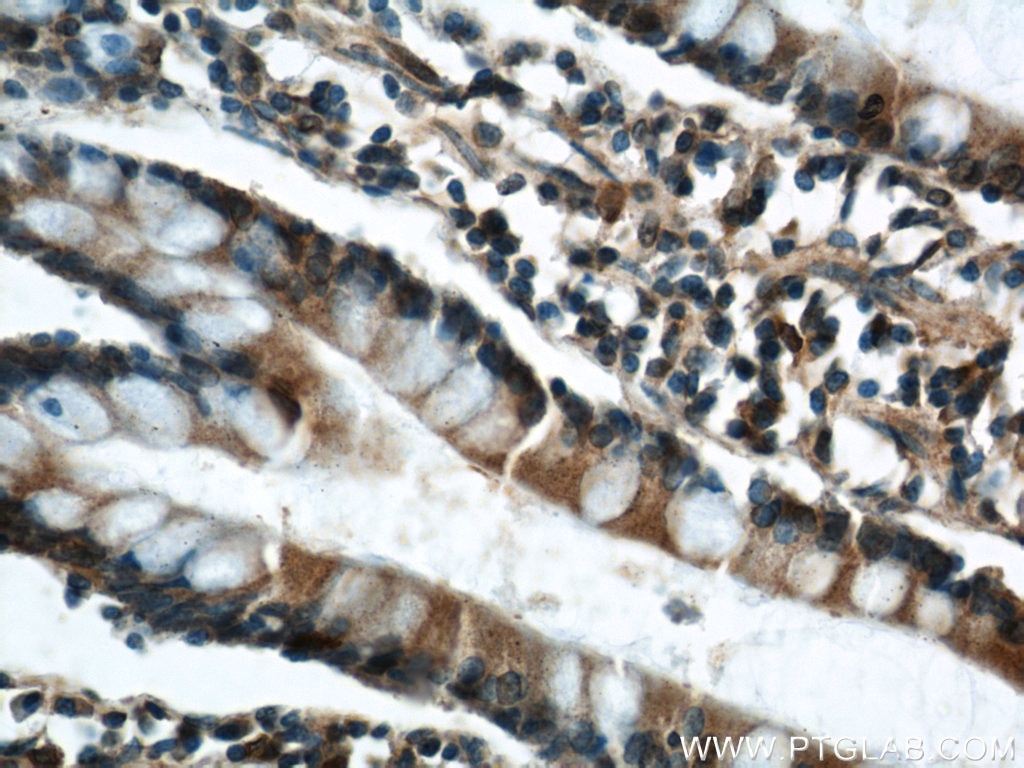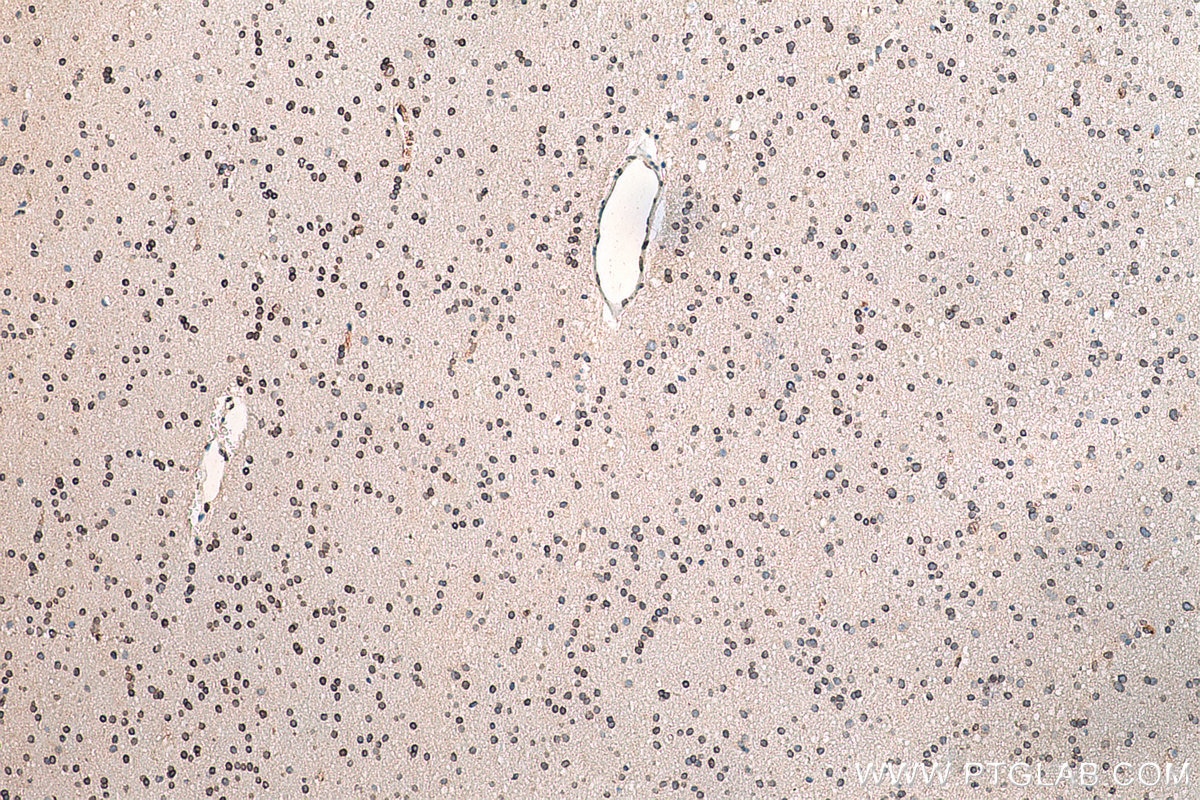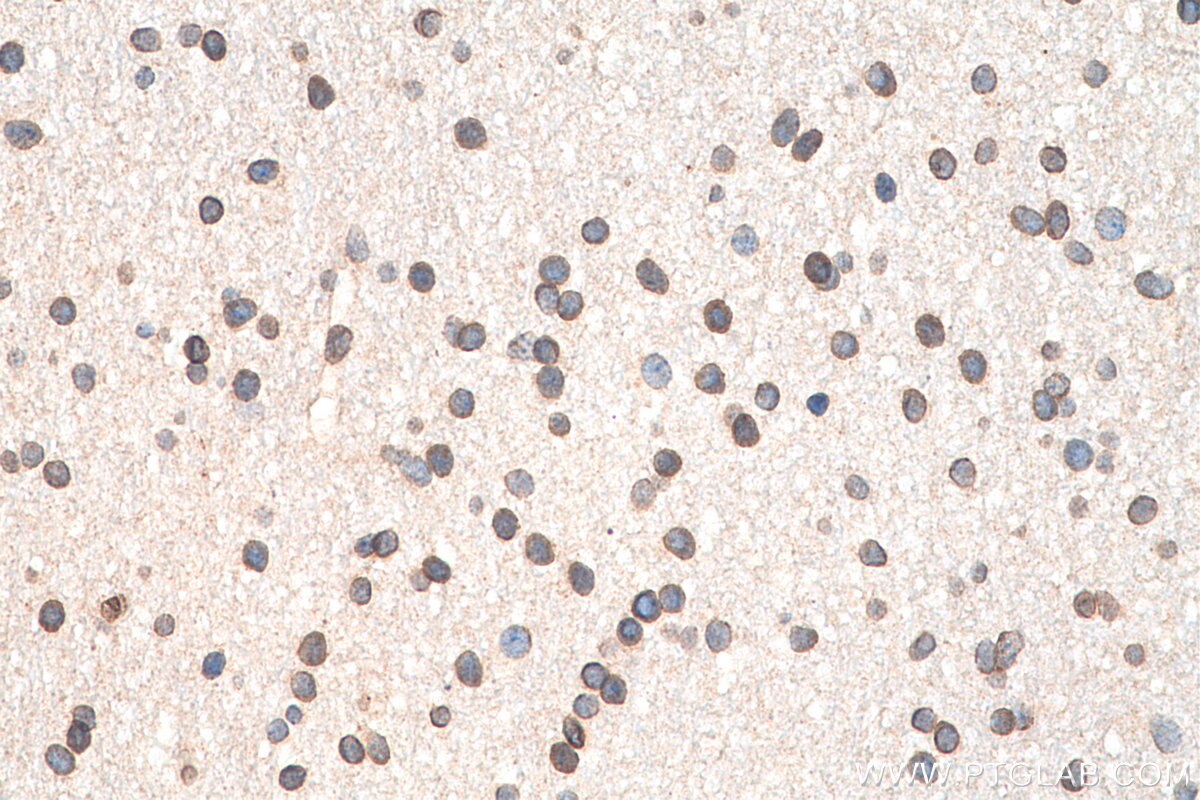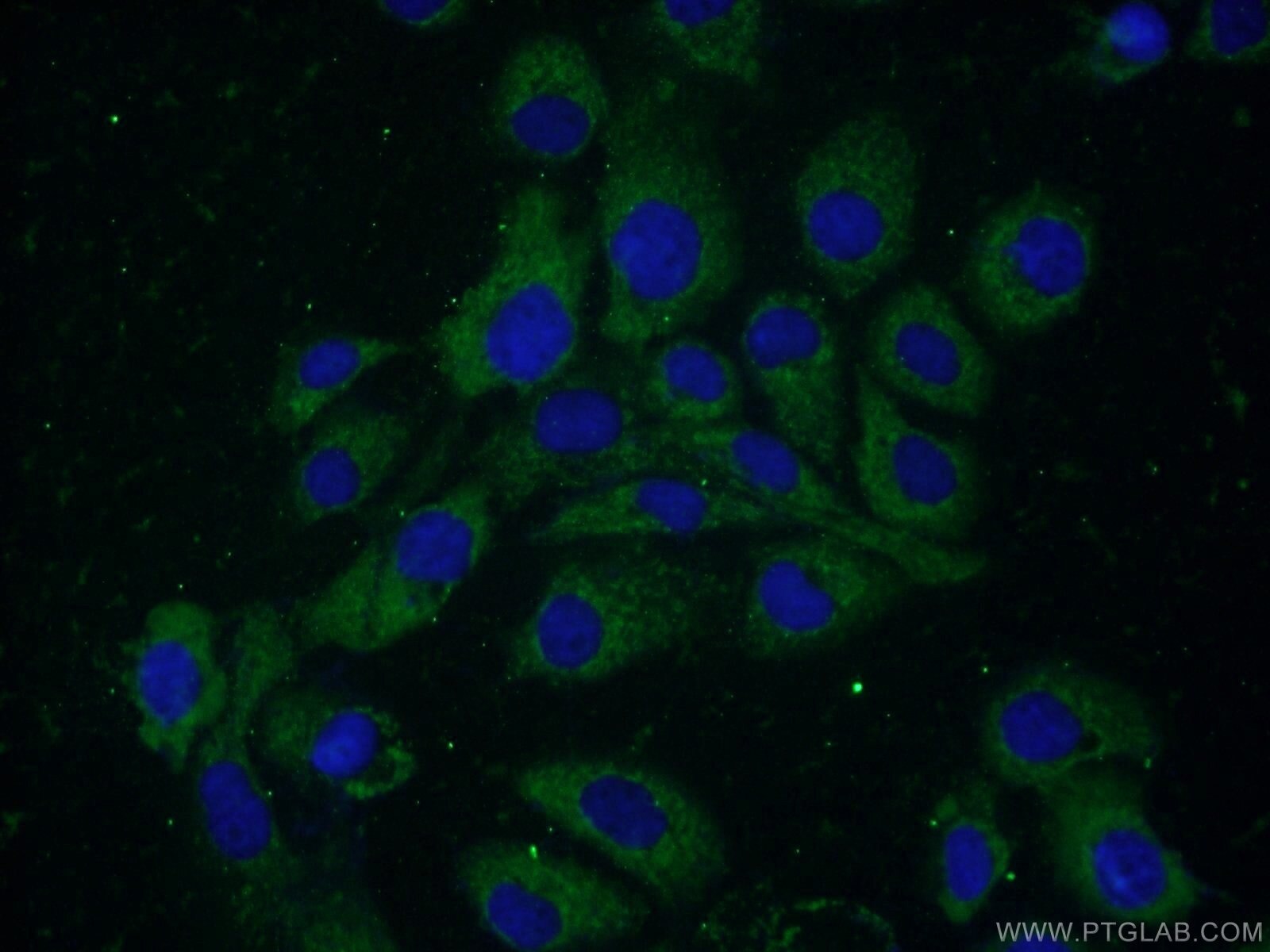ELOVL4 Polyclonal antibody
ELOVL4 Polyclonal Antibody for WB, IF, IHC, ELISA
Host / Isotype
Rabbit / IgG
Reactivity
human, mouse, rat
Applications
WB, IF, IHC, ELISA
Conjugate
Unconjugated
Cat no : 55023-1-AP
Synonyms
Validation Data Gallery
Tested Applications
| Positive WB detected in | Y79 cells, A431 cells, mouse brain tissue |
| Positive IHC detected in | human small intestine tissue, human gliomas tissue Note: suggested antigen retrieval with TE buffer pH 9.0; (*) Alternatively, antigen retrieval may be performed with citrate buffer pH 6.0 |
| Positive IF detected in | A431 cells |
Recommended dilution
| Application | Dilution |
|---|---|
| Western Blot (WB) | WB : 1:500-1:2000 |
| Immunohistochemistry (IHC) | IHC : 1:50-1:500 |
| Immunofluorescence (IF) | IF : 1:10-1:100 |
| It is recommended that this reagent should be titrated in each testing system to obtain optimal results. | |
| Sample-dependent, Check data in validation data gallery. | |
Published Applications
| WB | See 6 publications below |
| IHC | See 2 publications below |
Product Information
55023-1-AP targets ELOVL4 in WB, IF, IHC, ELISA applications and shows reactivity with human, mouse, rat samples.
| Tested Reactivity | human, mouse, rat |
| Cited Reactivity | human, mouse, rat |
| Host / Isotype | Rabbit / IgG |
| Class | Polyclonal |
| Type | Antibody |
| Immunogen | Peptide |
| Full Name | elongation of very long chain fatty acids (FEN1/Elo2, SUR4/Elo3, yeast)-like 4 |
| Calculated Molecular Weight | 37 kDa |
| Observed Molecular Weight | 37-40 kDa |
| GenBank Accession Number | NM_022726 |
| Gene Symbol | ELOVL4 |
| Gene ID (NCBI) | 6785 |
| RRID | AB_10859792 |
| Conjugate | Unconjugated |
| Form | Liquid |
| Purification Method | Antigen affinity purification |
| Storage Buffer | PBS with 0.02% sodium azide and 50% glycerol pH 7.3. |
| Storage Conditions | Store at -20°C. Aliquoting is unnecessary for -20oC storage. 20ul sizes contain 0.1% BSA. |
Background Information
ELOVL4, also named as ADMD, STGD2 and STGD3, belongs to the ELO family. It is a component of the fatty acid elongation system. Elovl4 is involved in the biosynthesis of very long chain fatty acids. It seems to represent a photoreceptor-specific component of the fatty acid elongation system residing on the endoplasmic reticulum. ELOVL4 may be implicated in docosahexaenoic acid (DHA) biosynthesis, which requires dietary consumption of the essential alpha-linolenic acid and a subsequent series of three elongation steps. Defects in ELOVL4 are the cause of Stargardt disease type 3 (STGD3). The antibody is specific to ELOVL4.
Protocols
| Product Specific Protocols | |
|---|---|
| WB protocol for ELOVL4 antibody 55023-1-AP | Download protocol |
| IHC protocol for ELOVL4 antibody 55023-1-AP | Download protocol |
| IF protocol for ELOVL4 antibody 55023-1-AP | Download protocol |
| Standard Protocols | |
|---|---|
| Click here to view our Standard Protocols |
Publications
| Species | Application | Title |
|---|---|---|
Ocul Surf PPARγ regulates meibocyte differentiation and lipid synthesis of cultured human meibomian gland epithelial cells (hMGEC). | ||
Int J Mol Sci In Human and Mouse Spino-Cerebellar Tissue, Ataxin-2 Expansion Affects Ceramide-Sphingomyelin Metabolism. | ||
Invest Ophthalmol Vis Sci Isotretinoin Impairs the Secretory Function of Meibomian Gland Via the PPARγ Signaling Pathway. | ||
Lipids Phytosphingosine Increases Biosynthesis of Phytoceramide by Uniquely Stimulating the Expression of Dihydroceramide C4-desaturase (DES2) in Cultured Human Keratinocytes. | ||
Ocul Surf Anomaly of cornea and ocular adnexa in spinster homolog 2 (Spns2) knockout mice |
